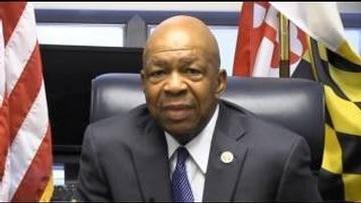[ad_1]
Originally Published February 22, 2010
By Congressman Elijah Cummings
Those who wonder how best to sustain the coalition for positive change that elected Barack Obama could gain by considering the life of a good man who helped to forge President Obama’s victory – Rev. Dr. John L. Wright of the First Baptist Church of Guilford.
Although he experienced racial prejudice and injustice in his youth, Dr. Wright came to understand that bitterness and a sense of grievance cure no injuries.
Rather, it is only through compassion for others and a commitment to our shared well-being that we can find the unity we need – and the path to healing.
This insight was at the heart of John Wright’s success, both as a minister of the Gospel and as an advocate for constructive social change. When God called him home last month, he left his community a far better place.
I first came to know Dr. Wright back in the 1980s. I was then a young state legislator, and he had just been elected President of the Maryland NAACP.

It did not take me long to discover that he was the type of “servant leader” that made my parents’ generation so great.
Like my parents, in his younger years, John Wright learned the hard discipline and perseverance essential to earning a living with his hands. In the hardships, poverty and racism that plagued his youth, he found his calling to serve God and his fellow human beings.
Later, he would use those early struggles as a passport to helping others.
Both in his pulpit and as a civil rights leader, Pastor Wright was a bear of a man – a modern day prophet declaring the social gospel message of our faith.
Advocate and coalition-builder, he often reminded the rest of us that the fundamental humanity that all people share is a core principle of our lives – and the central thrust of our struggle for civil and human rights for all Americans.
Achieving that working balance between advocacy and unity within the broader society was the key to Dr. Wright’s brilliant leadership. As our mutual friend, Professor C. Vernon Grey has observed:
“Dr. Wright brought changes in education and in the Police Department in Howard County. He was a monumental figure who tried to right the wrongs he saw in the county and elsewhere. It was the sheer force of his personality that brought change to this county.”
I whole-heartedly agree.
That same credibility was essential when Dr. Wright and I worked together to organize people of faith during the early months of Barack Obama’s Maryland campaign.
Although some now may have forgotten that once there were doubts within our community about whether a Black man could win the presidency, Dr. Wright was unfazed.
“If God be for us,” he often would encourage the rest of us, “who can stand against us?”
I miss Dr. Wright’s friendship. Yet, I always will be grateful that he lived long enough to see that faith realized on Inauguration Day last year.
Now, in the face of the difficult challenges that our country and our progressive coalition must overcome, his wisdom is still needed.
Dr. Wright would remind us that courageous social advocacy has allowed Americans of Color to survive through centuries of adversity. He also would observe, however, that our future in this country depends upon the strength to be found only in broadly-based, progressive unity.
He was both a student of Black History and an important participant in making the history of his own time. Therefore, he understood that there is a tension between advocating for racial justice and our need to sustain a coalition for change.
This tension has been exacerbated by the economic challenges of our time. In the midst of the worst financial crisis since the Great Depression, Americans are suffering – and African Americans are suffering disproportionately.
It is understandable, therefore, that some have challenged President Obama and the Congress to do more to reduce the economic devastation within Black communities. I am among them.
I also am convinced that the President genuinely wants to do more. Yet, I know that the central political struggle in Washington is less about the racial equity and more about how much the federal government should do to address the widespread American need.
This fight is important to minority communities.
In truth, thousands upon thousands of Black jobs have already been saved by the Recovery Act and other federal initiatives – especially jobs in the education and healthcare professions. Now we must better respond to the job losses in more vulnerable sectors like the construction industry.
It also is true that federal efforts to extend unemployment benefits, along with expanded federal support for programs like Medicaid, disproportionately benefit those with the greatest need, including those who live in minority communities.
There are limits, of course, to what any President can accomplish without bipartisan congressional support – especially in the Senate. There, the Republican leadership has almost universally rejected and filibustered progressive change.
Dr. Wright would understand that reform of the Congress is where our movement’s next battle must be won – and, like Dr. Wright, I have faith that we can prevail.
If God be for us, who can stand against us?
The opinions on this page are those of the writers and not necessarily those of the AFRO.
Send letters to The Afro-American • 1531 S. Edgewood St. Baltimore, MD 21227 or fax to 1-877-570-9297 or e-mail to [email protected]
[ad_2]
Source link
